“If you board the wrong train, it is no use running along the corridor in the other direction.” Dietrich Bonhoeffer
It has been amazing for me to watch and listen to influential leaders of the Christian Right vilify Pope Francis for “being liberal” and “surrendering in the culture war.” I find it amazing because for the past 30 years I have been watching the culture warriors fight this war.
It was in 1992 when Pat Buchanan announced at the Republican National Convention that “There is a religious war going on in our country for the soul of America. It is a cultural war, as critical to the kind of nation we will one day be as was the Cold War itself.”
I had deep ambivalence that speech back then and I was a conservative Republican and moderately conservative Christian. I had already seen how vicious the politically driven Christian conservatism was when I attended Southwestern Baptist Theological Seminary during the early part of the Fundamentalist takeover of that school.
When I was ordained as a Priest in a more conservative Episcopal denomination back in 1996 I became part of a denomination at the time that had fully embraced the ideas of the culture war. When we went to clergy conferences our textbooks were those of Buchanan, Robert Bork, and Thomas Sowell as well as many others which espoused the necessity and rightness of the religious and culture war. Leadership indoctrinated us in this.
However as a military chaplain I had deep qualms about what was going on in this because I was already seeing the practical effects this was having on those who I served. I remember talking to some of the other chaplains in the denomination, a number who had similar concerns.
So for many years I operated in the nether world of representing a denomination which by the day was growing more deeply aligned with the culture warriors. It began to come to a head in 2006 when Gordon Klingenschmitt, a Navy Chaplain on active duty began a campaign which ended caused a great uproar among religious conservatives and caused chaplains from many conservative denominations great grief as people in our churches looked to Klingenschmitt as a some kind of hero. In fact he was not. He was and is a pathological liar who has been on a Jihad since even before he entered the Navy as a Chaplain in 2003. I saw the unbridled vicious and unethical behavior exhibited by Klingenschmitt and his allies in the extreme Christian right and the right wing political hacks and pundits who use the Christian faith and unwitting but sincere Christians to advance an agenda which is neither Christian nor faithful to the vision of our founding fathers.
It was after that that I deployed to Iraq where what I saw and experienced changed me in profound ways. Suffering from chronic and severe PTSD I suffered a collapse of faith and for two years was for all intents and purposes an agnostic just hoping that God existed. Only my strong sense of vocation and the grace and mercy of God kept me going. But when faith returned it was different and as I began to write about it I realized who much I had changed. In September 2010 I was told by my Bishop that I needed to leave the church because I was “too liberal.”
So now when I see the same right wing political hacks, pundits, preachers and politicians who have been stoking this Christian version of Jihad against a plethora of enemies, Moslems, Gays, women, Liberals, progressives in fact anyone that they want to label as different then them or “enemies” of God or “America” I get my hackles up.
When I heard Pat Buchanan and Sarah Palin condemning Pope Francis for his alleged liberalism I realized that no Christian leader was safe from their foolish and shortsighted agenda. Pope Francis has chosen the way of Jesus, he is embracing people that conservative Christians have not only marginalized, but have persecuted for years and are still attempting to do so in the United States and elsewhere. There are times that I fear for the life of Pope Francis because there are people who believe so strongly that they would kill him if they believed that God wanted them to, and when people like Buchanan accuse Francis of surrendering in the culture war they help justify people wo will kill in the name of God.
What seems to me that most of these people lack is a real sense of historical context, not only of the importance that the founders of the United States placed on the freedom of religion and freedom from religion as well as the history of other countries.
One of my special areas of study is the Weimar Republic and the Nazi period of German history. Religious conservatives were often willing partners with Hitler and the Nazi movement because of their opposition to socialism and what they saw as an atheistic movement in Germany, which many lamed on the Jews. Martin Niemöller was a prominent pastor in that era. His writings reflected the feelings of many. He wrote:
“I hated the growing atheistic movement, which was fostered and promoted by the Social Democrats and the Communists. Their hostility toward the Church made me pin my hopes on Hitler for a while. I am paying for that mistake now; and not me alone, but thousands of other persons like me.”
Niemöller was a war hero. He had served on U-Boats during the First World War and commanded a U-Boat in 1918 sinking a number of ships. After the war he resigned his commission in the Navy in opposition to the Weimar Republic and briefly was a commander in a local Freikorps unit. His book Vom U-Boot zur Kanzel (From U-boat to Pulpit) traced his journey from the Navy to the pastorate. He became a Pastor and as a Christian opposed what he believed to be the evils of Godless Communism and Socialism. This placed him in the very conservative camp in the years of the Weimar Republic and he rose in the ranks of the United Evangelical Church of the Old Prussian Union. Active in conservative politics, Niemöller initially support the appointment of Adolf Hitler as Chancellor.
However, he quickly soured on Hitler due to his insistence on the state taking precedence over the Church. Niemöller was typical of many Germans of his era and harbored ant-Semitic sentiments that he only completely abandoned his anti-Semitic views until after he was imprisoned. He would spend 8 years as a prisoner of the Nazis a period hat he said changed him including his views about Jews, Communists and Socialists. Niemöller was one of the founding members of the Pfarrernotbund (Pastor’s Emergency Federation) and later the Confessing Church. He was tried and imprisoned in concentration camps due to his now outspoken criticism of the Hitler regime.
Herman Maas was another Evangelical Pastor. Unlike Niemöller, Maas was a active participant in the ecumenical movement, built bridges to the Jewish community and defended the rights of Jews as German citizens. He received a fair amount of criticism for his attendance of Reichspräsident Friedrich Ebert’s funeral. Ebert was both a Socialist and avowed atheist. Maas too was active in the Pfarrernotbund and the Confessing church, and unlike Niemöller maintained his opposition to anti-Semitism and the Nazi policies against the Jews. He would help draft the Barmen declaration. He too would be imprisoned and survive the war. Maas was the first non-Jewish German to be officially invited to the newly formed state of Israel in 1950. In July 1964 Yad Vashem recognized the Maas as one of the Righteous Among the Nations.
Dietrich Bonhoeffer a young Pastor and theologian would also step up to oppose the Nazis and offer support for the Jews. He helped draft the Bethel Confession which among other things rejected “every attempt to establish a visible theocracy on earth by the church as a infraction in the order of secular authority. This makes the gospel into a law. The church cannot protect or sustain life on earth. This remains the office of secular authority.” He also helped draft the Barmen declaration which opposed and condemned Nazi Christianity. Bonhoeffer would eventually along with members of his family take an active role in the anti-Nazi resistance as a double agent for Admiral Canaris’ Abwehr. For this he would be executed after his final sermon in the concentration camp at Flossenburg just a month prior to the end of the war.
Another opponent of the Nazis in the Confessing Church was Swiss-German theologian Karl Barth. Barth went into exile as a Swiss citizen but remained active in the criticism of the Nazi regime.
Bishop Galen of Münster and others including Father Rupert Meyer in Munich who opposed Hitler in the early 1920s would also oppose the Nazi policies toward the Church and the Jews. They would also end up in concentrations camps with some dying at the hands of the Nazis.
All these men took risks to defend the Jews who were religious minority group that had been traditionally discriminated against inGermany. They opposed the Nazi policies which were widely supported by much of the German populace making them unpopular in their own churches as among the traditionally conservative supporters of the Evangelical and Catholic Churches. The Jews were not simply discriminated against as a racial or religious group but also identified with the political left, especially the Social Democrats, Independent Socialists, Communists and the Spartacists. Since the Independent Socialists, Communists and Spartacists were all involved in attempts to create a Soviet state during the early tumultuous years of Weimar and been involved in many acts of violence against traditional German institutions and the state, they were viewed by Hitler and others as part of the Bolshevik-Jewish threat toGermany. Karl Liebnicht and Rosa Luxembourg were among the high profile leaders of this movement in Germany and both were Jewish. The fact that many in the leadership of the Bolshevik movement in theSoviet Union were Jewish added fuel to the fire that the Nazis stoked inGermany. Hitler and the Nazis played on the historic, but muted prejudice against German Jews who in many cases were more secular and German than religious and had assimilated well inGermany. Hitler’s rhetoric as well as that of other Nazis and Nazi publications helped identify the Jews as part of the “Stab in the back” myth that was commonly used by the German right to explain the defeat in the First World War. Thus they were painted as a political and social threat to Germany.
When Hitler took power persecution of the Jews began in earnest. Jews were along with Communists, Trade Unions and Socialists enemies of the state. They were banned from the military, civil service and other government employment, professional associations and forced to wear a gold Star of David on their clothing. Their property was seized, many were abused by SA men acting as deputized auxiliary police and many times their businesses, Synagogues and homes were vandalized, burned or seized by the state. Many would be forced to flee in order not to be sent to ghettos and concentration camps. Even those leaving only escaped with the minimum of their possessions as the Nazi regime extorted anything of value from them as they leftGermany. This was all done because Hitler and those like him portrayed the Jews as not only an inferior race, but enemies of the state and the German people.
Today we face a similar movement in conservative circles in the United States. This time it is not the Jews but Moslems, Homosexuals, and “Liberals” who are the targets of the xenophobic and ideological rage vocalized by many influential members of the “conservative” media including Rush Limbaugh, Sean Hannity and numerous others.
Their support for “Christian morale values” such as being against abortion has ingratiated them with conservative Christians. It is so bad that that many “conservative” Christians cannot differentiate between their vitriolic and un-Christian rage against Moslems, Gays and Lesbians, trade unionists, Democrats or anyone else portrayed by the big media talkers and the Gospel.
It is if they have become an appendage to Republican or “conservative” politicians rather than a Christian church. It is not uncommon to see Christians on the web or on the call in talk radio programs identify lock stock and barrel with Limbaugh and others identifying the crass materialism and social Darwinism of “pure” Capitalism and the anti-Christian policy of pre-emptive war. That may seem harsh, but many of these people in the “Conservative Bible Project” seek to re-translate the Bible into their own political, social and economic policies even seeking to change or minimize any Scripture that might be equated with the “Social Gospel.” Unfortunately many Christians and others have jumped in on the anti-Moslem and anti-immigrant crusades launched by those on the far right.
There are those on the far right that advocate eliminating all Moslems from the military, government, security intelligence and police forces and even universities as did Timothy Rollins of “The American Partisan.”
“this can best be done by enacting the Great Muslim Purge from our military and other national security apparatuses. These people need to be removed from every security post, even to be completely removed from all levels of government employment, be it federal, state, county, city or other municipality. This applies especially to universities….”
Glenn Beck made this comment about a people reacting against Moslems:
“When things—when people become hungry, when people see that their way of life is on the edge of being over, they will put razor wire up and just based on the way you look or just based on your religion, they will round you up. Is that wrong? Oh my gosh, it is Nazi, World War II wrong, but society has proved it time and time again: It will happen.”
Doug Giles a seminary educated columnist for Townhall.com a leading conservative opinion site made this comment
“Please note: If Christ wasn’t cool with irrigating irate Islamicists for facts, I must admit, I would still have to green light our boys getting data from enemy combatants 007 style. Stick a fire hose up their tailpipe and turn it on full blast. I don’t care. I’m not as holy as most of you super saints or as evolved as some of you progressive atheists purport to be. Security beats spirituality in this scenario, as far as I’m concerned.”
Similar threats are made against non-European immigrants especially those from Mexico or Latin America. I have a friend; a Navy Officer who served a year in Iraq that was confronted by a member of the “Minutemen” in Texas to show his Green Card and threatened simply because he is Mexican. Others especially conservative Christians suggest criminalizing homosexuality, jailing homosexuals and even deporting them. Some Christian political action groups are going overseas to Russia and Africa to help enact laws against homosexuals and recently the same people have been hosted by members of Congress to promote their ideology.
These actions and proposed laws are so similar to the Nuremberg Laws and the Aryan Paragraph issued by the Nazis that it is scary. Likewise the threats to American Moslems of placing them “behind razor wire” as we did to American Japanese citizens in World War II are chilling. I wonder how Christians would react if an atheist or someone on the political left suggested all conservative Christians or members of pro-Life groups be imprisoned for the actions of Christians or pro-Life movement members like Scott Roeder or Eric Rudolph who killed to stop abortion or Fred Phelps and his Westboro Baptist Church?
This new found militancy has swept up the “Christian right” and others since 9-11 and has reached proportions that I could never have imagined. After my tour in Iraq I realized that much of what these people were saying was not Christian at all and when taken to their logical conclusion would be a police state in which anyone who opposed them would be persecuted. I question the motivations of the leaders of the movement but believe that most of the Christian conservatives have been caught up in the anger and the emotion of the times versus being true believers in what these men say. That being said, you don’t have to be a true believer to be a willing accomplice in actions that first are not Christian and second trample on the Constitutional rights of American citizens.
I could keep citing examples but if someone can show me where this is condoned in the Gospels I would like to know. The fact is that Christians are to place God first and defend the rights of others, even non-believers. This is found not only in Scripture but runs through the Christian tradition across the denominational spectrum.
What the good people who suggesting these “collective guilt” actions against American Moslems do is dangerous, not just for Moslems and other minorities but ultimately for them. American and English law is based on legal precedence. Once something has been determined to be legal, or constitutional it is considered by the law to be settled law. This is a point made by Chief Justice Roberts regarding Roe v. Wade at his confirmation hearings. If Christians want to use the law against Moslems or for that matter any other minority be it religious or political they tread on very dangerous ground. Not only do they make a mockery of the Gospel command to love our neighbors, care for the foreigners among us and to be a witness to non-Christians support policies or laws that if enacted could and very well would be used against them by their opponents.
Law is all about precedent and if such laws were enacted and upheld by the courts they would be settled law that could be used against anyone. What these dear brothers and sisters fail to realize is that such laws can be turned against them if the state should ever decided based on the statements of actions of some that the Christian community is a threat to state security of the public welfare. With the actions of some radical Christians who have committed murder and violence against political, social and religious opponents it would not be hard for the government to label whole churches as enemies of the state. The law is a two edged sword and those who want to use it to have the state enforce their religious, social, ideological or political beliefs on others need to remember what comes around goes around.
The Confessing church understood this and many were imprisoned, exiled or killed for this belief. The founding fathers of this country understood this too, that is why there is the Constitution protection of Religion in the First Amendment. This was put in because Virginia Baptists who had been persecuted by Anglicans lobbied James Madison for the amendment in the Bill of Rights threatening to withdraw their support for his candidacy if he did not. Niemöller would discover the depths of his earlier folly in prison telling one interviewer after the war:
“I find myself wondering about that too. I wonder about it as much as I regret it. Still, it is true that Hitler betrayed me. I had an audience with him, as a representative of the Protestant Church, shortly before he became Chancellor, in 1932. Hitler promised me on his word of honor, to protect the Church, and not to issue any anti-Church laws. He also agreed not to allow pogroms against the Jews, assuring me as follows: ‘There will be restrictions against the Jews, but there will be no ghettos, no pogroms, in Germany. I really believed given the widespread anti-Semitism in Germany, at that time—that Jews should avoid aspiring to Government positions or seats in the Reichstag. There were many Jews, especially among the Zionists, who took a similar stand. Hitler’s assurance satisfied me at the time. On the other hand, I hated the growing atheistic movement, which was fostered and promoted by the Social Democrats and the Communists. Their hostility toward the Church made me pin my hopes on Hitler for a while. I am paying for that mistake now; and not me alone, but thousands of other persons like me.”
It is easy for well meaning people Niemöller to be bought with promises of support by politicians and media types who speak the words they want to hear in difficult times.
So today I suggest the formation of an ecumenical Pastor’s Emergency League which will not be bought by the empty and godless promises of hate mongers on the right or the left. Such a group of men and women spanning the breadth of the Christian tradition and others that see the danger of extremism of all types is becoming necessary. Such a step is becoming necessary due to the militancy of the Christian right as well as the militancy of atheist groups who lobby against all public religious expression by any religion. Such a League would respect the various creeds and statements of faith of each member’s denomination. The movement of the right has set a dangerous course fraught with perils that they do not comprehend. Just allow those that they believe are oppressing or persecuting them now to be empowered with the precedent of laws discriminating against specific religious groups against the Christians that supported them in the first place. It will be a bitter poison indeed when that happens to them later if American Moslems were to be targets by such laws.
We have entered a dangerous phase of American history. These movements have the potential not only to oppress law-abiding and patriotic American Moslems, Gays, Secularists and others and to crush the religious freedoms of all in this county. Suggesting that American citizens, including those who serve the county in the military or government of entire religious, ethnic, political or religious affiliation, sexual preference be jailed, banned from office or fired is totalitarian and dare I say Nazi like.
Christian culture warriors have become so enamored with political power and using the state to enforce their beliefs. They have forgotten that the people are not converted by religious laws enforced by the police power of the state but on the love shown by God’s people to others. They have forgotten that the sword that they desire to use against those that they despise can easily be turned against them. Many German Christians found this out far too late.
Niemöller would say it well in this poem:
First they came for the communists, and I did not speak out—because I was not a communist;
Then they came for the socialists, and I did not speak out—because I was not a socialist;
Then they came for the trade unionists, and I did not speak out—because I was not a trade unionist;
Then they came for the Jews, and I did not speak out—because I was not a Jew;
Then they came for me—and there was no one left to speak out for me.
If Christians would only learn that lesson.
Peace
Padre Steve+



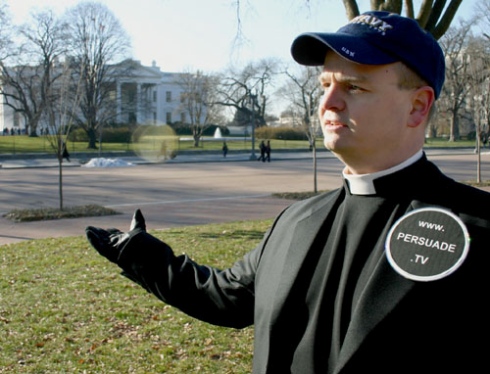
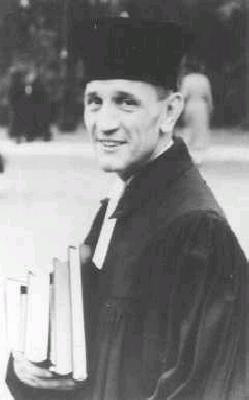
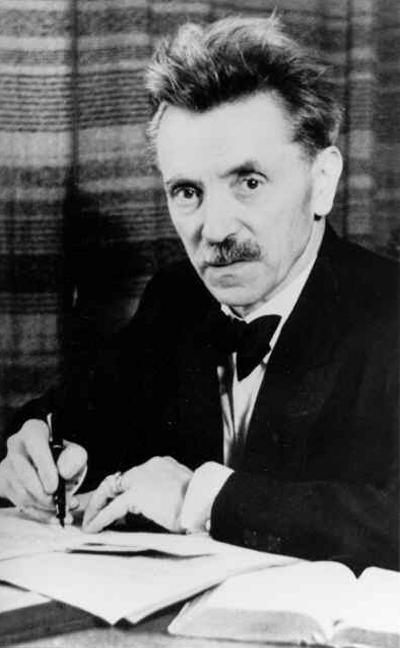
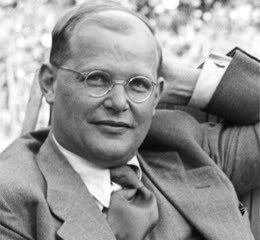

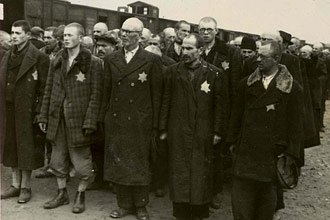
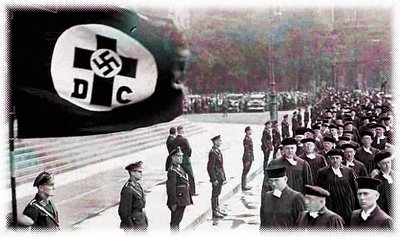
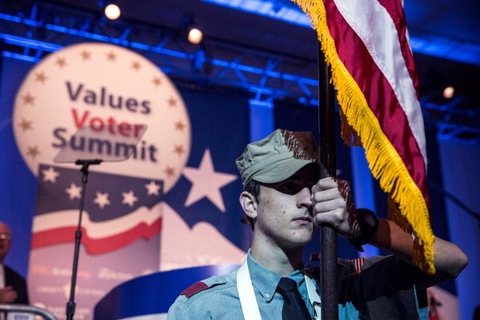
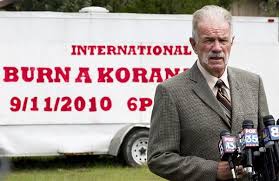
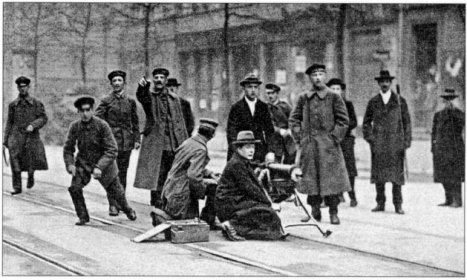

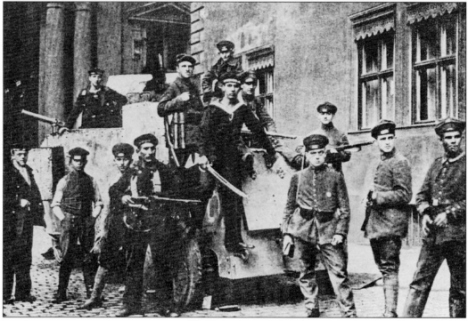


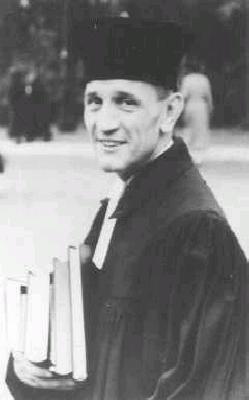

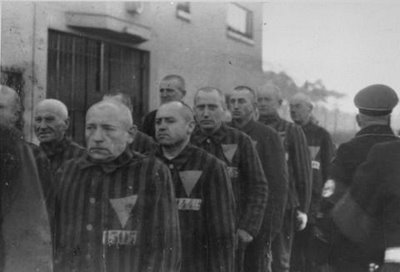
 The Kapp Putsch
The Kapp Putsch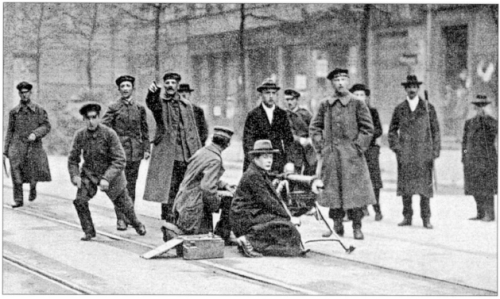 Spartacists Attempt to Overthrow the Republic
Spartacists Attempt to Overthrow the Republic Threats to the Republic: The People’s Naval Division Terrorized Berlin
Threats to the Republic: The People’s Naval Division Terrorized Berlin General Wilhelm Groener Who Worked with Socialist Leaders Friedrich Ebert and Gustav Noske to Save the Republic against a Soviet Style Revolution
General Wilhelm Groener Who Worked with Socialist Leaders Friedrich Ebert and Gustav Noske to Save the Republic against a Soviet Style Revolution General Hans Von Seeckt Creator of the Reichswehr Believer that it Needed to be Apolitical
General Hans Von Seeckt Creator of the Reichswehr Believer that it Needed to be Apolitical 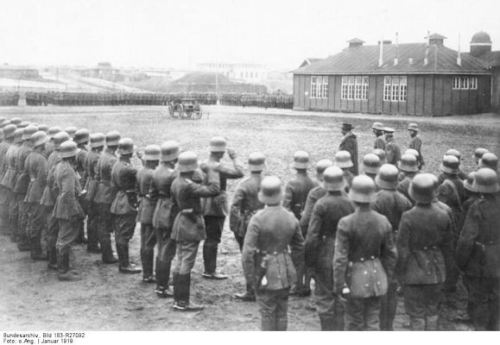 Gustav Noske Reviewing Freikorps Hulsen Which was Formed out of Existing Army Units by General von Hulsen
Gustav Noske Reviewing Freikorps Hulsen Which was Formed out of Existing Army Units by General von Hulsen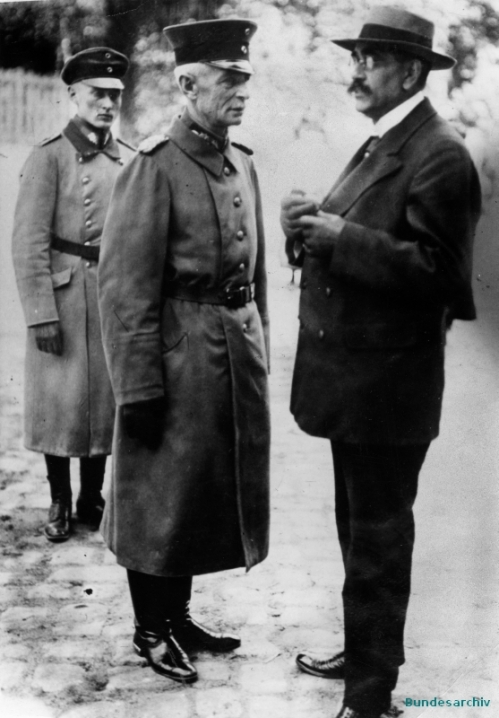 Noske with General Von Luttwitz
Noske with General Von Luttwitz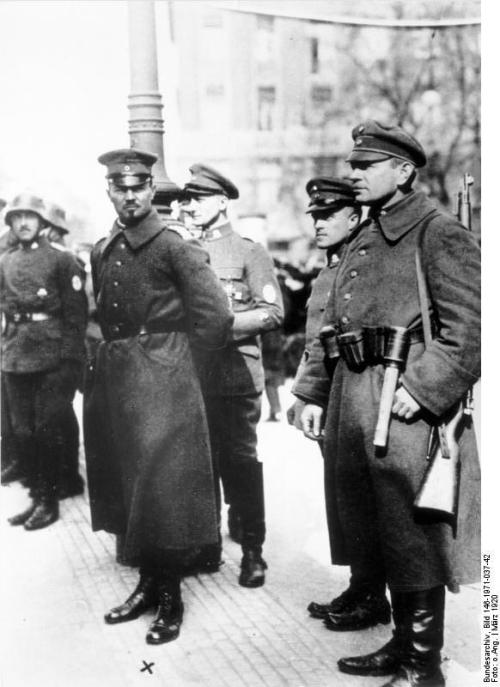 Lieutenant Commander Ehrhardt Commander of the 2nd Naval Brigade during the Kapp Putsch, although a Hard Line Conservative Ehrhardt would Suffer under the Nazis
Lieutenant Commander Ehrhardt Commander of the 2nd Naval Brigade during the Kapp Putsch, although a Hard Line Conservative Ehrhardt would Suffer under the Nazis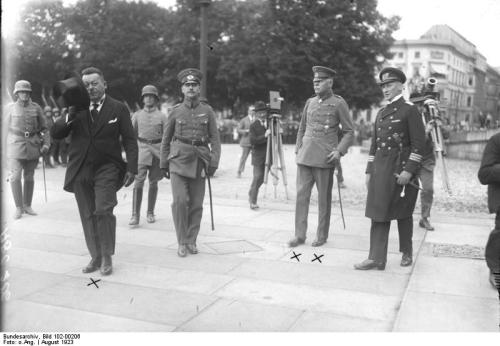 President Friedrich Ebert with Von Seeckt and other Military Leaders
President Friedrich Ebert with Von Seeckt and other Military Leaders Freikorps Rossbach During the Kapp Putsch. One of the Most Extreme Freikorps it was Demobilized and Broken up a number of its Leaders including Rossbach Found Their Way to the Nazis
Freikorps Rossbach During the Kapp Putsch. One of the Most Extreme Freikorps it was Demobilized and Broken up a number of its Leaders including Rossbach Found Their Way to the Nazis The Ehrhardt Brigade During the Kapp Putsch
The Ehrhardt Brigade During the Kapp Putsch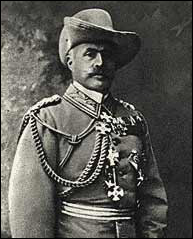 Admiral Von Trotha head of the Navy was Sacked for Supporting the Putsch
Admiral Von Trotha head of the Navy was Sacked for Supporting the Putsch